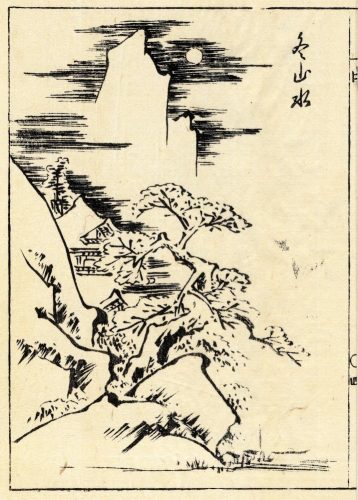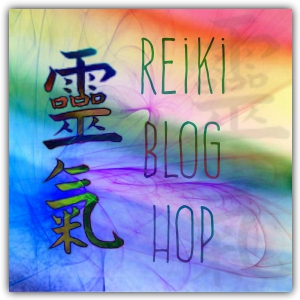Last week in my Shoden (Reiki 1) class, we were discussing the precepts and practicing various methods of meditating on them, including the practice of speaking the precepts energetically from the hara, or the energy center in the belly. The perennial discussion regarding the imperative voice of the precepts (see my blog post, The Imperative Precepts) came up: the precepts were written by Usui-sensei and given to us essentially as a set of rules and so use the imperative mood. Imperatives are commands and have the implied subject “you.” This becomes clearer when we get to the precepts which use a personal pronoun—“Be honest in your work.” “Show compassion to yourself and others.” Most people want to reword these as “my work” and “to myself.” I think this change is fine and support my students who want to recite the precepts that way. But that’s not how I say them and last week I got some new insight into the importance of leaving them as they are.
When considering the full text of the precepts, which includes some additional descriptions and instructions beyond the five principles themselves, it is clear that Usui-sensei is saying this to his student. So even from my first Reiki initiation, I always felt like it was my teacher saying these to me, not me saying them to myself. Luckily this allowed me to be comfortable with the wording and I never had a feeling of wanting to change it.
During our discussion, one of my students made a comment about ego. I misunderstood her, but in the process created a new understanding of this issue. One of the precepts is “be humble” (based on different translations, it seems this means to show gratitude and respect to others). As Reiki practitioners, we’re always trying to release the self so that we can become one with Spirit, the source of the spiritual energy. We always try to remember that we are not making assessments or judgments; we are not healing, clearing or balancing. The energy naturally seeks a place of balance and we all are perfect and whole when we are one with the great bright light. The idea of being humble is clear to us: it is not for us to take on the responsibility of control.
But yet it is common for those who embrace humility to then take responsibility for their flaws. This seems pretty reasonable, doesn’t it? But here is where true humility must start. We must also release our pride in being sinners. Even as we release our pride of being powerful, we also release our pride of being ineffectual. So often it is easy to get stuck in a binary philosophy: If I release my power, control and arrogance, then I will become modest, self-effacing, even inept. Certainly this is not the way to become one with Spirit! When we are stuck in binary thinking then it’s always a case of either/or. Becoming one with Spirit allows us to see the ebb and flow of all things, the impermanence of all things—the impermanence of our power and the impermanence of our incompetence.
Like stars, mists and candle flames
Mirages, dewdrops and water bubbles
Like dreams, lightning and clouds.
In that way I will view all existence.
In a way, taking the responsibility of changing the precepts to the first person could be considered an egoic act. “I sure can get angry! I am a great worrier! I am lazier in my work than anyone I know!” It becomes quite the parody when presented like this, but how often have you seen others, or observed in yourself, just this kind of sly self-aggrandizement? By leaving the precepts in the second person, we can hear Usui-sensei saying them to us, we can hear our teacher saying them to us, we can hear our higher self saying them to us. And we simply bring awareness to these issues—certainly these principles are common issues that come up daily!—rather than bringing control to them.
Once I had finished my verbose response to the student’s comment about ego, she said, “That’s not what I meant.” She went on to explain that she was using the word “ego” not as “sense of self” but as the mind, the source of the ego. She suggested that when we approach the precepts from a place of intellect, discussions such as this will arise as we try to force these spiritual concepts into ill-fitting mental confines. However, when we say the precepts from the hara, from our energetic source, the healing of these principles takes over and grammatical peculiarities and translation inconsistencies fall away as we become one within ourselves, with our teachers, with Usui-sensei, with Spirit. We become Usui-sensei who gives the precepts; we become the student who receives the precepts.
When the precepts arise from healing energy, they are healing and we become whole, we become one, giver and receiver, ebb and flow.
_________________________________________________
Joy Vernon is a Certified Professional Tarot Reader and Reiki Teacher in Denver, Colorado. Her specialty is the Empyrean Key Transformational Guidance, which combines energetic and esoteric modalities to help her clients break through blocks and align themselves with their higher purpose. For information on upcoming classes or to schedule an appointment, please visit JoyVernon.com.
© 2013 by Joy Vernon. All rights reserved.
Estimated Reading Time: 4 minutes




